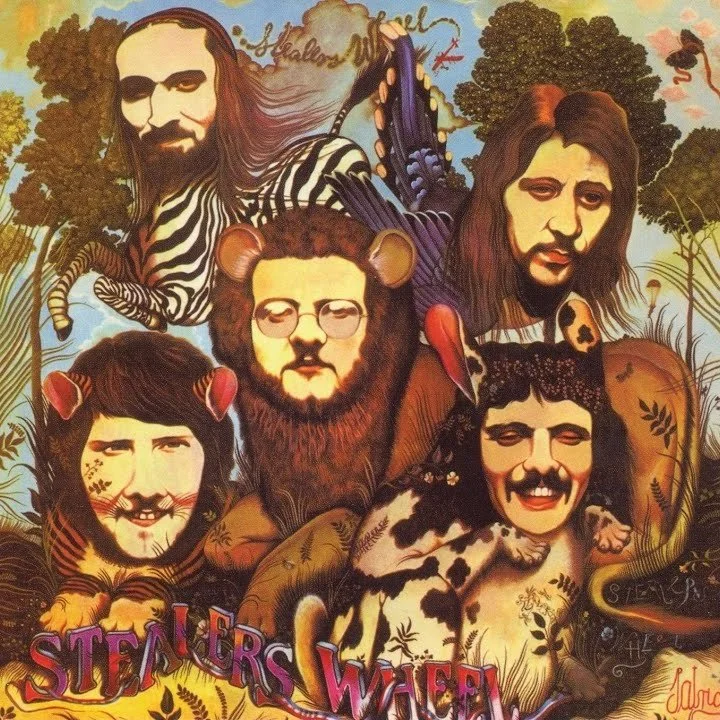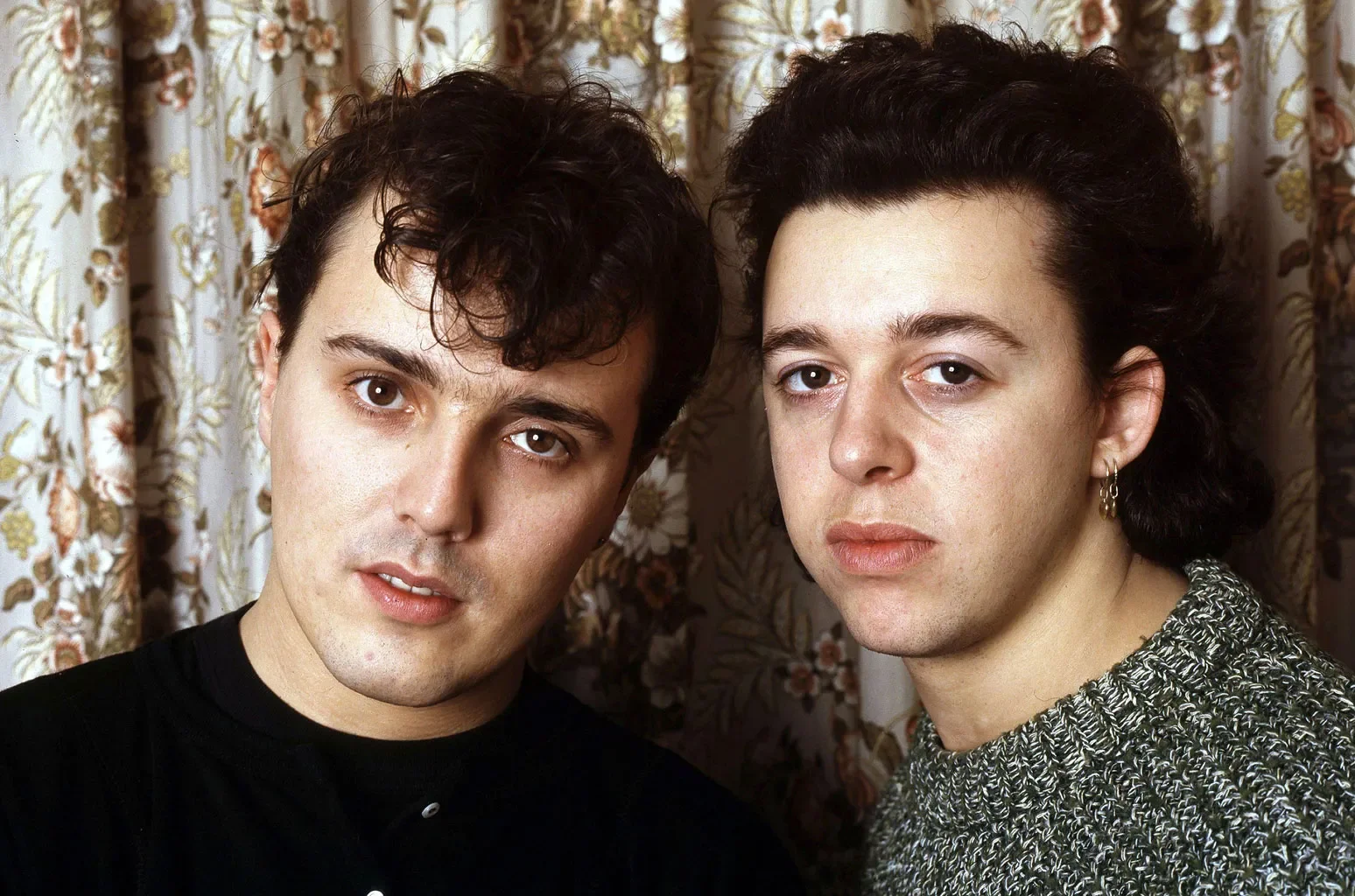Seals & Crofts - Summer Breeze
“Summer Breeze” is a song by the musical duo Seals & Crofts, released in 1972 on their album of the same name. The song became one of their biggest hits, reaching number six on the Billboard Hot 100 chart. The duo, consisting of James Seals and Dash Crofts, were known for their soft rock sound, blending elements of pop, folk, and a bit of rock. “Summer Breeze” captures the essence of a relaxing summer day, with lyrics that evoke imagery of warm weather, nature, and the comfort of home. The song’s success helped solidify Seals & Crofts' popularity in the 1970s, and they followed it up with other hits like “Diamond Girl” and “We May Never Pass This Way (Again).” The gentle acoustic sound and harmonious vocals contributed to the laid-back vibe that resonated with listeners and made it a staple of the soft rock genre. “Summer Breeze” has been covered by several artists over the years, further cementing its status as a classic. The song continues to be celebrated for its nostalgic qualities and timeless appeal.
Sister Rosetta Tharpe – Didn’t It Rain (Children)
"Didn't It Rain" is one of Sister Rosetta Tharpe's most celebrated songs, deeply rooted in the gospel tradition. A concert, in the rain, was recorded by Granada Television at the disused railway station at Wilbraham Road, Manchester, in May 1964. They had dressed the disused station up to resemble what they imagined the "deep South" would look like. Then the typical Mancunian weather drenched it. Sister Rosetta made the call to change the set list at the last minute and perform this as the opening number. The band performed on one platform while the audience was seated on the opposite platform. The song captures a sense of spirituality, reflecting on the themes of divine intervention and the feeling of being uplifted through faith during challenging times. Tharpe's energetic performance style combined with her remarkable guitar skills helped to bridge the gap between gospel and popular music, paving the way for future artists across various genres. Originally popularized in the 1930s, the song features a lively tempo and infectious rhythm, showcasing Tharpe's unique ability to infuse gospel music with the energy of blues and rock. Her influence can be seen in many artists who followed, and she is often credited with helping to lay the groundwork for rock and roll. Tharpe's contribution to music history extends beyond just "Didn't It Rain;" she was a trailblazer for female musicians, particularly in a time when the music industry was dominated by men. Her legacy continues to inspire musicians today, and her work is celebrated for its emotional depth and cultural significance.
Sly and the Family Stone – Everyday People
“Everyday People” by Sly and the Family Stone is a groundbreaking 1968 song that champions equality, unity, and acceptance across racial, social, and personal differences. Released during a time of social unrest in the United States, the song delivers a powerful message through its simple yet profound lyrics, emphasizing that no one is better than anyone else—“I am no better and neither are you / We are the same whatever we do.” The phrase “different strokes for different folks,” popularized by the song, became a lasting expression of tolerance. Musically, it blends elements of funk, soul, and pop, showcasing the band’s signature upbeat yet socially conscious style. As one of the first major integrated bands in rock and soul, Sly and the Family Stone used “Everyday People” to promote inclusivity, making it an enduring anthem of peace and civil rights.
Sylvia - Nobody
"Nobody" is a song written by Kye Fleming and Dennis Morgan, and recorded by American country music artist Sylvia. It was released in June 1982 as the second single from the album Just Sylvia.
The song was first recorded in 1982 by Sylvia, who was already a country music star, achieving a #1 hit and 2 other top tens in 1981. "Nobody" was her second and final Billboard #1 country hit.[1] The song was so successful, it crossed over to the Billboard Hot 100 charts, debuting on August 21, 1982 (the week the song dropped from #1 Country) and peaking at #15 in November.[2] "Nobody" spent 20 weeks on the chart; earned a gold record; and was also a top five Adult Contemporary hit.
The song turned young Sylvia into a star on both sides of the charts. Although she gained country-pop success with "Nobody", she never achieved another crossover hit, or for that matter, another Billboard Country Singles #1 hit. The song became Sylvia's signature song and got nominated for a Grammy Award in 1983 for Best Female Country Vocal Performance. It also helped her take home the Academy of Country Music (ACM) award for Top Female Vocalist of 1982, a category for which she was never even nominated by the Country Music Association (CMA). The title also received the BMI Song of the Year (1983) award for receiving the most radio airplay.
Tears For Fears - Everybody Wants To Rule The World
Tears For Fears - Everybody Wants To Rule The World
"Everybody Wants to Rule the World" is a song by the British band Tears for Fears, released in 1985 as part of their second album, "Songs from the Big Chair." Written by band members Roland Orzabal and Curt Smith, the song became one of their biggest hits, known for its catchy melody and thought-provoking lyrics that explore themes of power, ambition, and the human experience.
The song features a blend of rock and new wave elements, with its iconic guitar riffs and synthesizer backing. It topped the charts in multiple countries and remains a defining track of the 1980s. Over the years, "Everybody Wants to Rule the World" has been covered and referenced in various media, solidifying its status as a classic. The song's enduring appeal is a testament to its relatable message and memorable composition.


















